Best GitBook Alternatives in 2026: Review and Comparison
Looking for an alternative to GitBook? You've come to the right place.
Effective documentation serves as the backbone of any successful project or organization. GitBook, with its straightforward interface and advanced version control capabilities, has become a go-to choice for many teams and organizations. But different organizations have different needs, and what works for one may not seamlessly align with the workflows of another.
Fortunately, there are plenty of GitBook alternatives out there that are worth checking out. Let's explore their strengths and weaknesses to help you find the perfect fit for your documentation needs.
What is GitBook?
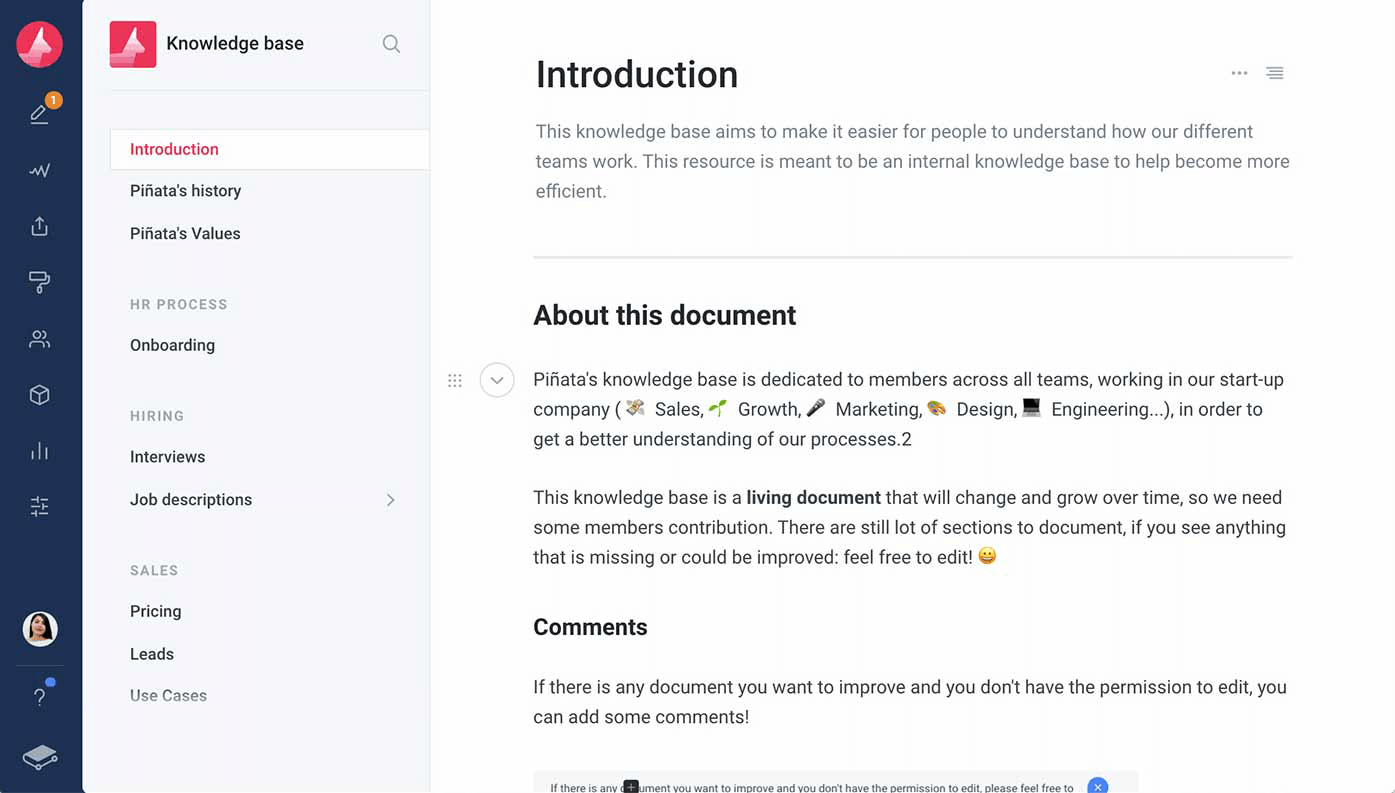
GitBook is a documentation tool and knowledge base software solution built with software development teams in mind. It allows organizations to organize their internal knowledge and publish documentation for their users within one platform. It has many unique features geared towards developers, including integrations with GitLab and GitHub, advanced version control, Markdown-based editor, and more.
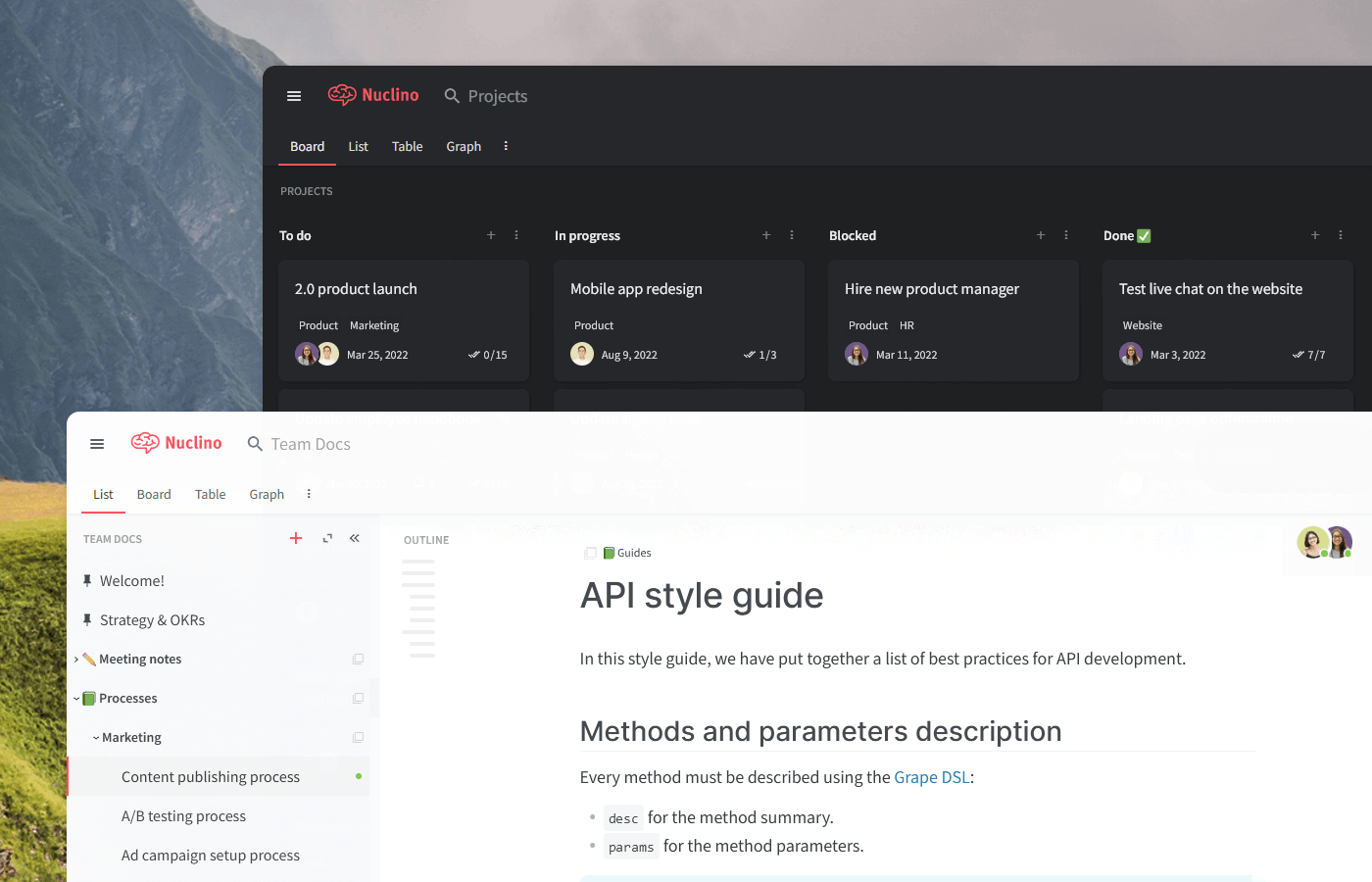
Why you may need an alternative to GitBook
GitBook is a popular platform, but it's not without its drawbacks, and there are many reasons why you may be searching for a GitBook alternative:
Some users find GitBook to be too complex and over-engineered (source)
GitBook has a learning curve and lacks comprehensive documentation (source)
GitBook offers a limited number of integrations with third-party apps and services (source)
The pricing plans of GitBook are relatively expensive, and the free version is only available for personal use, making the tool inaccessible to some teams with limited budgets (source)
Does that sound familiar? Then it might be time to switch — fortunately, there are many great GitBook alternatives to choose from.
Top 8 GitBook alternatives
To make your decision easier, we've put together a list of the best GitBook alternatives and competitors, based on real reviews.
Check out the list below and find the knowledge base software that best suits your needs.
1. Nuclino
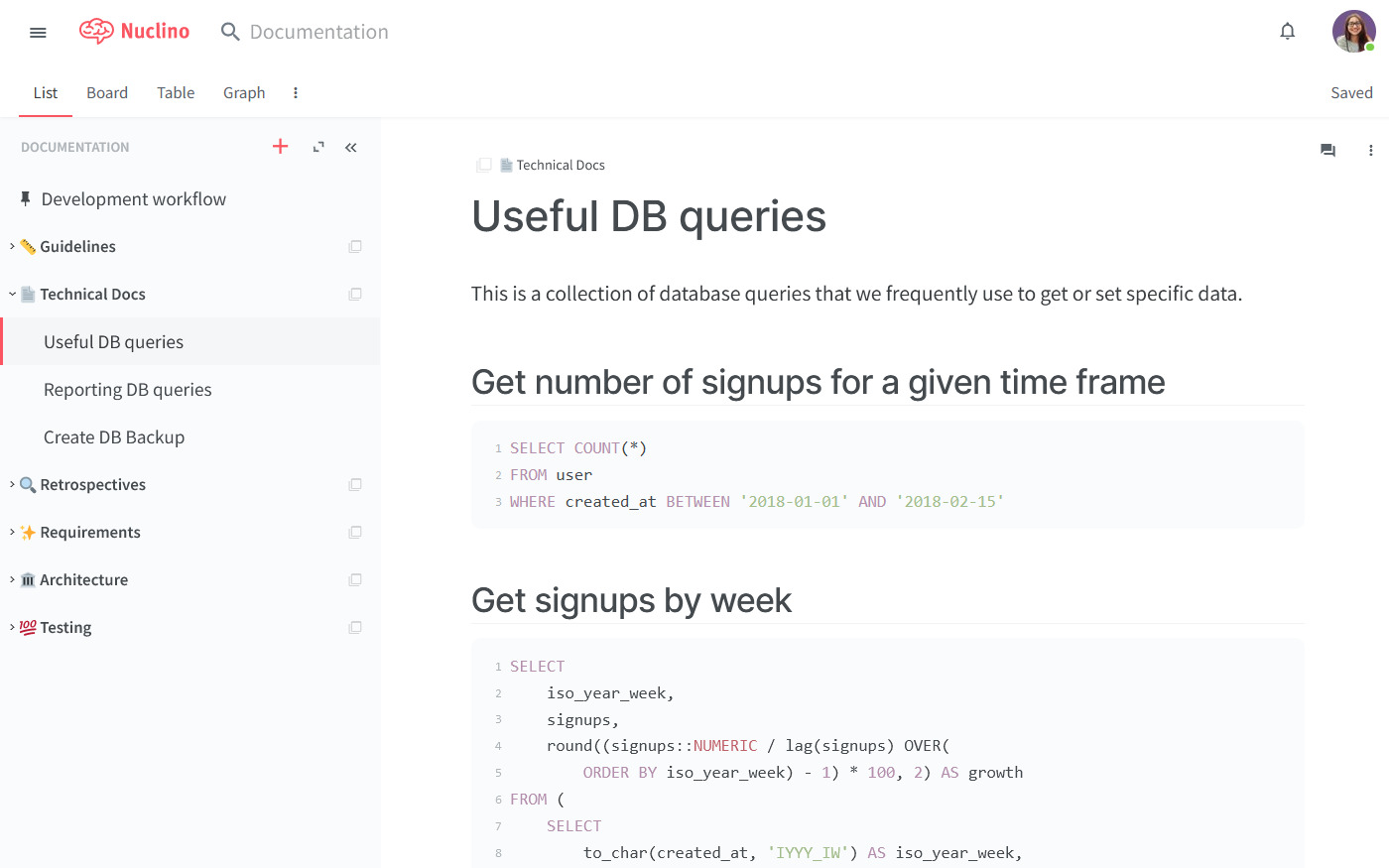
Pricing: Free, advanced features starting from $6/user/month
Rating on Capterra: 4.7/5
If you are looking to replace GitBook as your knowledge sharing or documentation tool, Nuclino can be a great alternative. It's a perfect solution for building a more collaborative internal knowledge base for your team — and bringing all your work together in one place.
Unlike GitBook, which requires submitting a change request for every edit, all content in Nuclino can be collaboratively edited by multiple team members in real time without version conflicts. Every change is automatically preserved in the version history and previous versions can be easily restored if needed. In case you are looking to build a more static knowledge base, you can also assign the read-only or comment-only roles to your users, preventing unwanted or accidental edits.
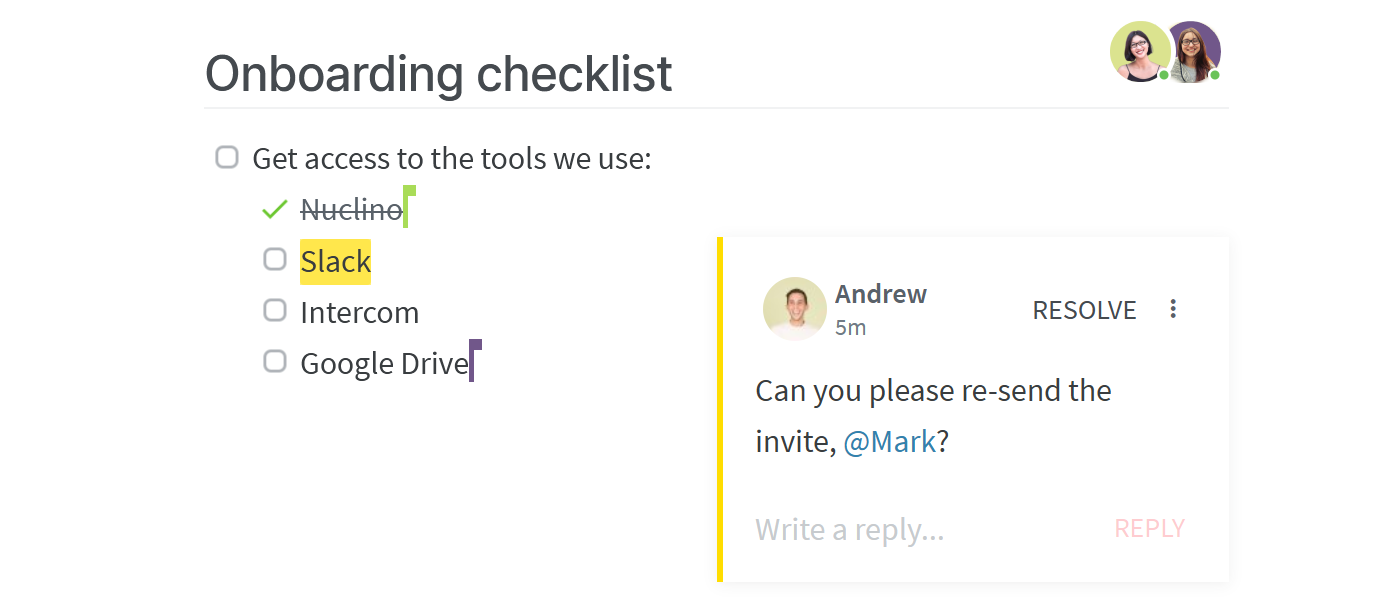
Performance is another notable strength of Nuclino. Every interaction, from search to editing, is optimized for speed — no loading spinners or unnecessary waiting. Markdown commands and hotkeys help you quickly format content without taking your hands off the keyboard. The search is just as fast, allowing you to quickly retrieve the information you need.
If you're a fan of GitBook AI, you will also appreciate Sidekick, the AI-powered assistant built into Nuclino. Sidekick can help you find information, generate ideas, create first drafts, summarize long documents, and more.
Nuclino also offers built-in visual collaboration and allows you to add an infinite collaborative canvas to any document. You can use it to create diagrams and flowcharts, run visual retrospectives, brainstorm ideas using sticky notes, and much more.
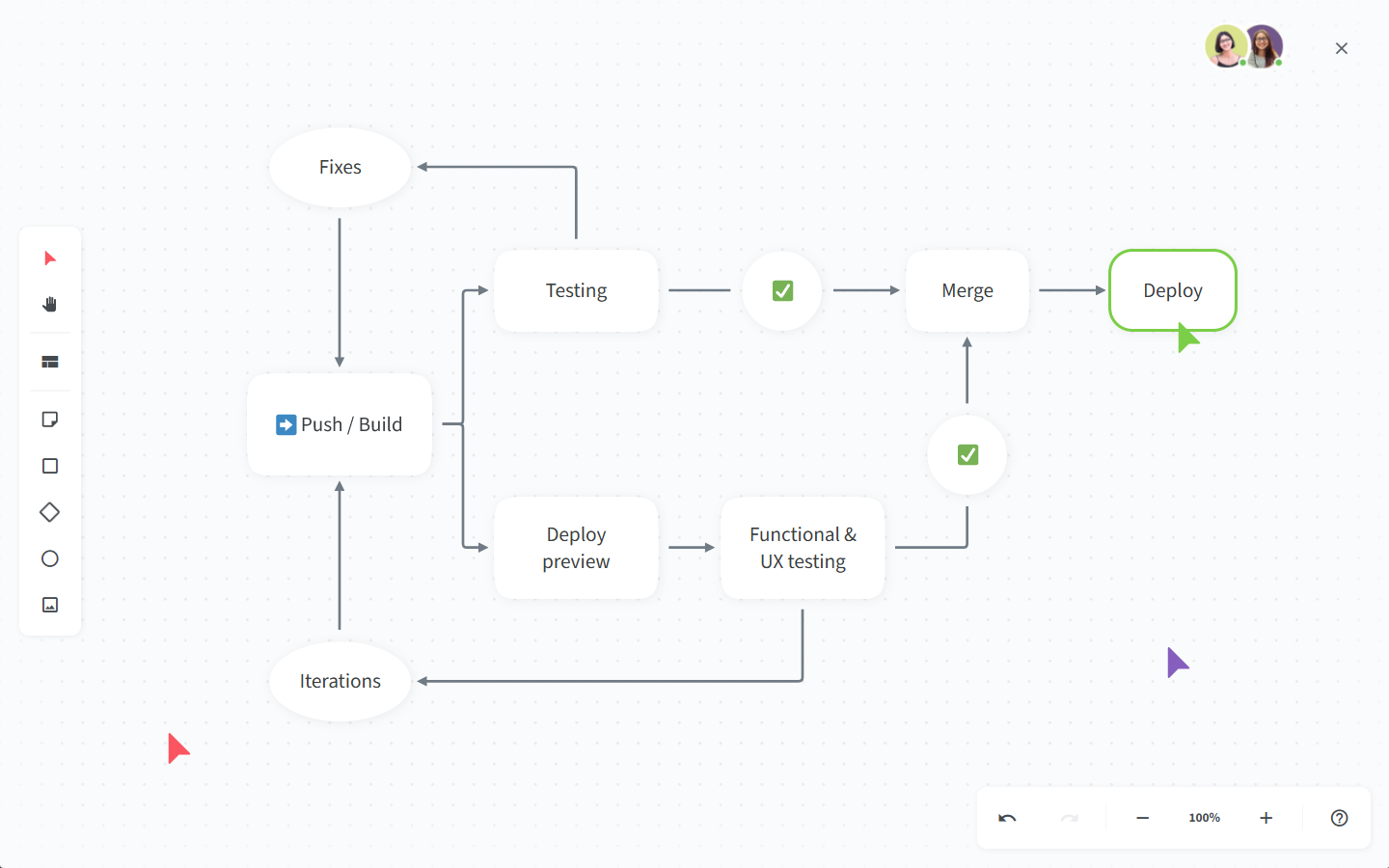
You can turn any Nuclino workspace into a public website, accessible to anyone on the web and discoverable via search engines. It's perfect for help centers, user documentation, changelogs, and much more.

It's worth noting that while Nuclino can be used exclusively as a knowledge sharing platform, it's a highly versatile tool that is capable of much more. It offers a variety of ways to structure and visualize your content, including a nested list, a Kanban board, a table, and a mindmap-style graph.
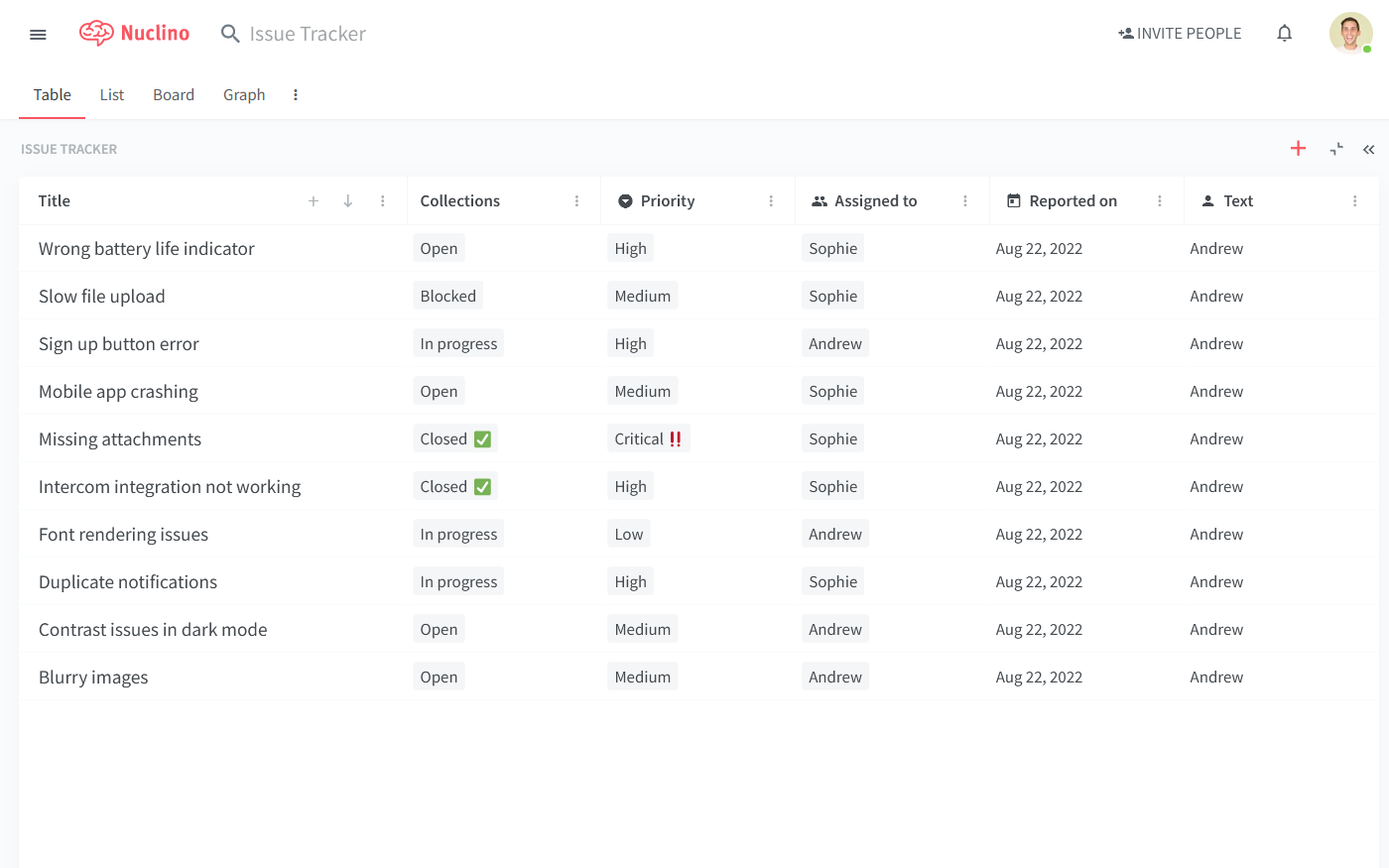
This makes Nuclino a great solution for many additional use cases, including project collaboration, sprint planning, asynchronous communication, and more. It works like a collective brain, allowing you to bring all your team's work together in one place and collaborate without the chaos of files and folders, context switching, or silos.
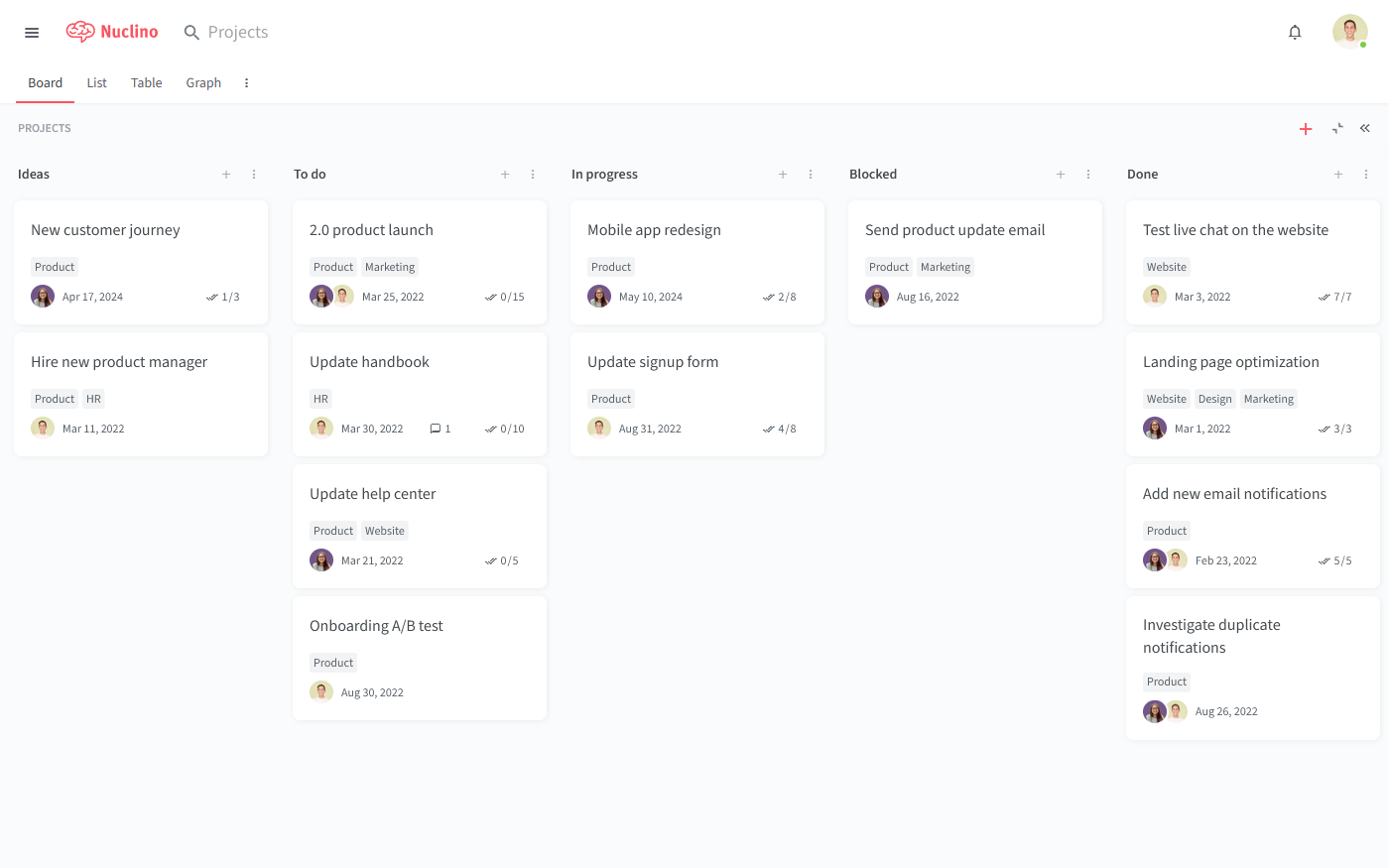
At the same time, Nuclino remains a remarkably lightweight and simple tool. Its interface is clean, intuitive, and distraction-free, with no clunky menus or complex settings. It requires minimal configuration and works out of the box, allowing anyone to quickly get started with the tool.
What users say about Nuclino:
"Great knowledge base for capturing information. We use Nuclino daily to make sure we're documenting everything — from sales playbooks to HR processes to specific data collection checklists. It's easy to use, update, comment, and share."
2. Confluence
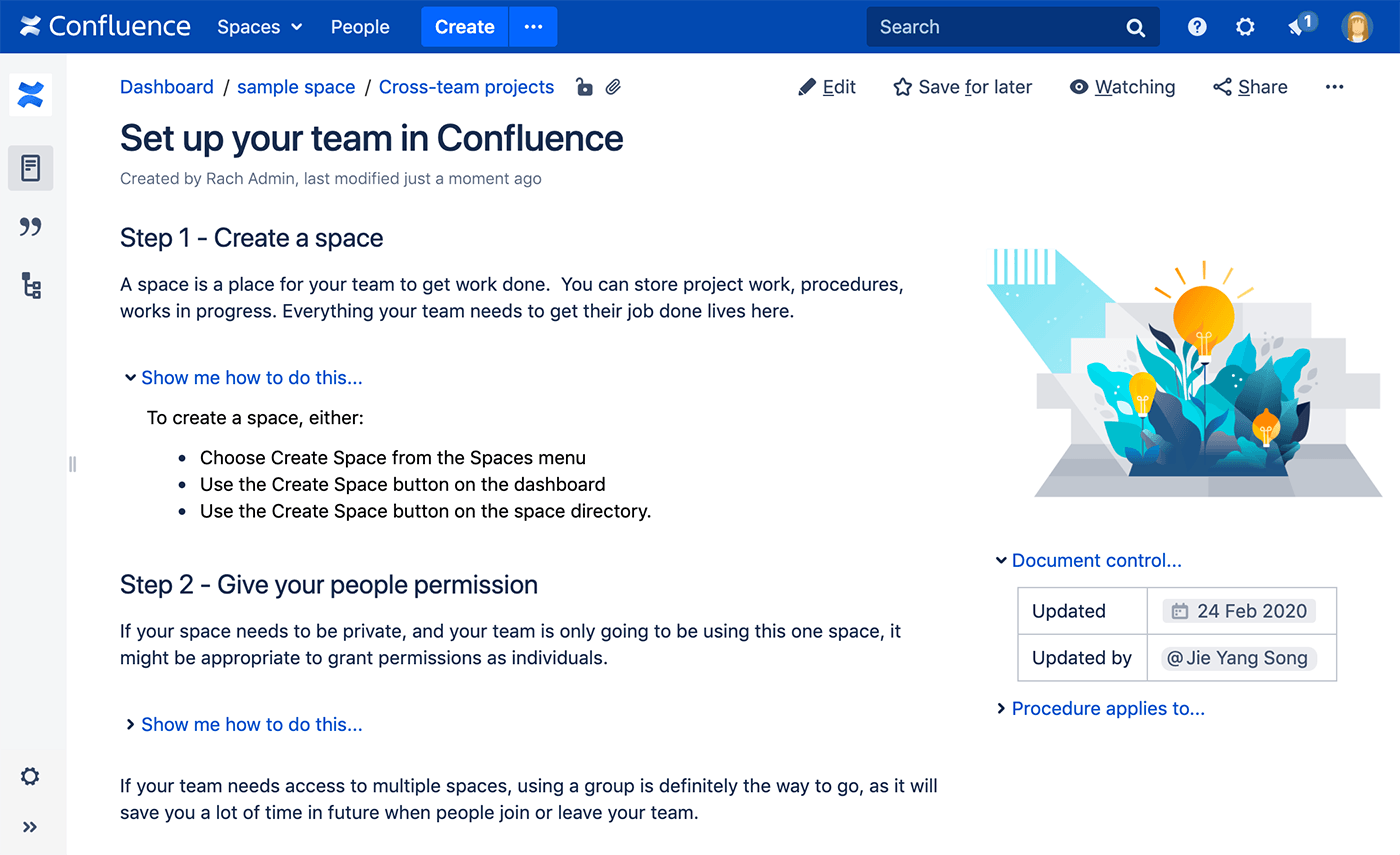
Pricing: Free, advanced features starting from $5/user/month
Rating on Capterra: 4.4/5
Any list of GitBook competitors would be incomplete without Atlassian Confluence. It's one of the oldest knowledge base software and documentation tools on the market. It's a great GitBook alternative for teams looking for a more powerful, feature-rich solution.
Confluence is a part of the Atlassian product suite and one of its core strengths lies in its tight integration with other Atlassian products, such as Jira and BitBucket. Like GitBook, Confluence is also geared towards developers. Non-technical users may find some aspects of Confluence to be too over-engineered and complex, however, experienced software development teams may appreciate its flexibility and extensive feature count.
Learn more about how Confluence compares to GitBook: GitBook vs Confluence.
Looking for more tools similar to Confluence? Check out this list of Confluence alternatives.
What users say about Confluence:
"We use Confluence for a knowledge base and it works very well. We put our software documentation in there as well. It is a great system with fantastic versioning and we never have any trouble with it. However, it can be really complex for the uninitiated."
3. GitHub Wiki
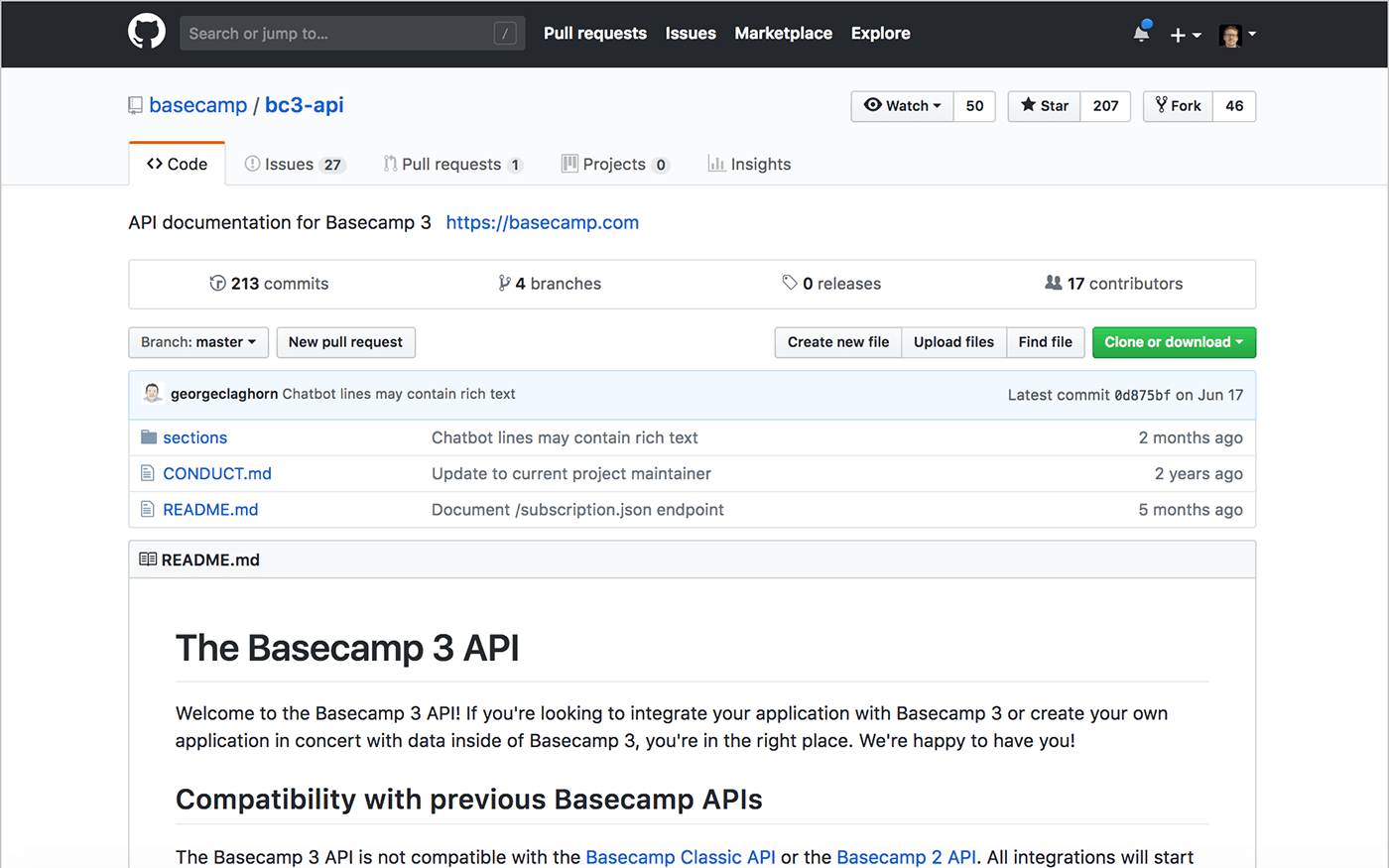
Pricing: Free, advanced features starting from $4/user/month
Rating on Capterra: 4.2/5
GitHub Wiki is another popular alternative to GitBook. Every repository on GitHub comes equipped with a section for hosting documentation, called a "Wiki". On the free plan, you can create public-facing documentation, and on the paid plans, you can choose whether to create a private wiki or make it public. With GitHub Wiki, you can write content just like everywhere else on GitHub. You can use Markdown to add rendered math expressions, diagrams, maps, and 3D models.
Hosting documentation is not one of GutHub's primary use cases, so GitHub Wiki has many limitations compared to GitBook. However, if you need a simple solution with no bells and whistles, it may be a good fit.
What users say about GitHub Wiki:
"GitHub checks all the boxes for a basic version controlling platform, but it has so much more available. It has tons of great integrations to run tests against code, as well as plenty of ways to create internal documentation similar to a wiki article."
4. Papyrs
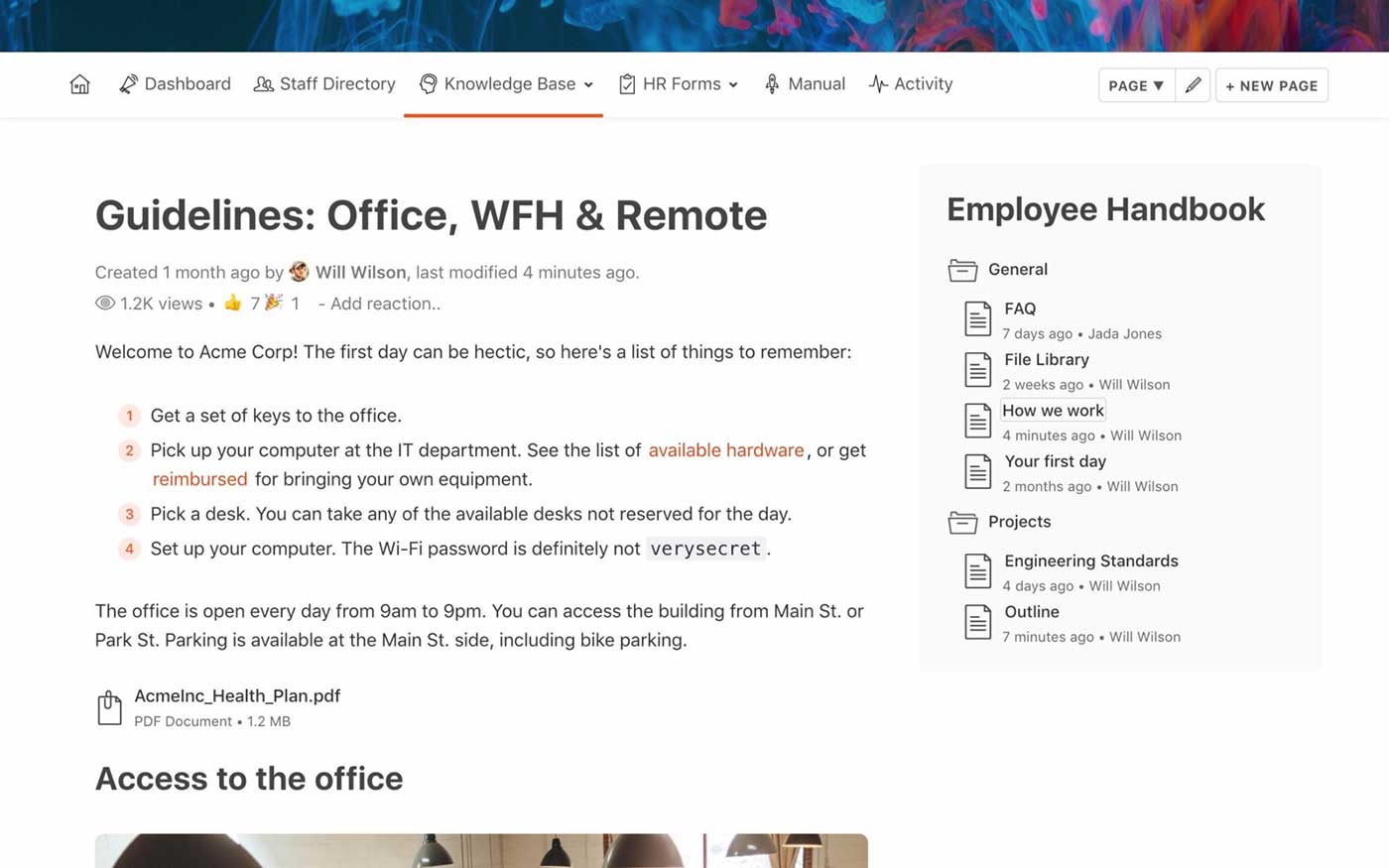
Pricing: Free, advanced features starting from $89/month
Rating on Capterra: 5/5
Papyrs is a fairly general-purpose tool that can be used as a knowledge base, company intranet, user documentation platform, and more. While it's not as powerful and flexible as some of the other popular GitBook alternatives, Papyrs is more user-friendly.
Its feature set covers everything you might need to set up your knowledge base, including a drag-and-drop page editor, powerful search, version history, user permissions, comments, and more. You can also make parts of your knowledge base public to set up your product documentation site, get feedback from your customers, or share your work with your clients and partners.
Papyrs offers a tiered pricing model. Its cheapest plan starts at $89 per month, making it a fairly expensive option if you are a small team.
What users say about Papyrs:
"Creating a wiki site was super easy with this intuitive program. Although for our needs some of the features are a bit too rich, the overall product is much more user-friendly than our last intranet site, and it's much more appealing to our company users as well."
5. Wiki.js
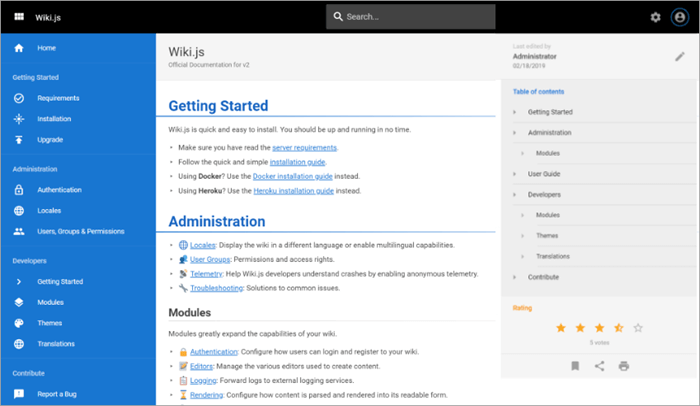
Pricing: Free, open-source
Rating on Capterra: No rating yet
Wiki.js is a powerful open-source alternative to GitBook. Popular among developers, this wiki tool saves all content directly as Markdown (.md) files and syncs with your remote Git repository. With a modern and elegant interface, it's a great platform for both internal and external documentation.
If you are a team of developers looking to replace GitBook with a high-performance, self-hosted alternative, give Wiki.js a try.
6. BookStack
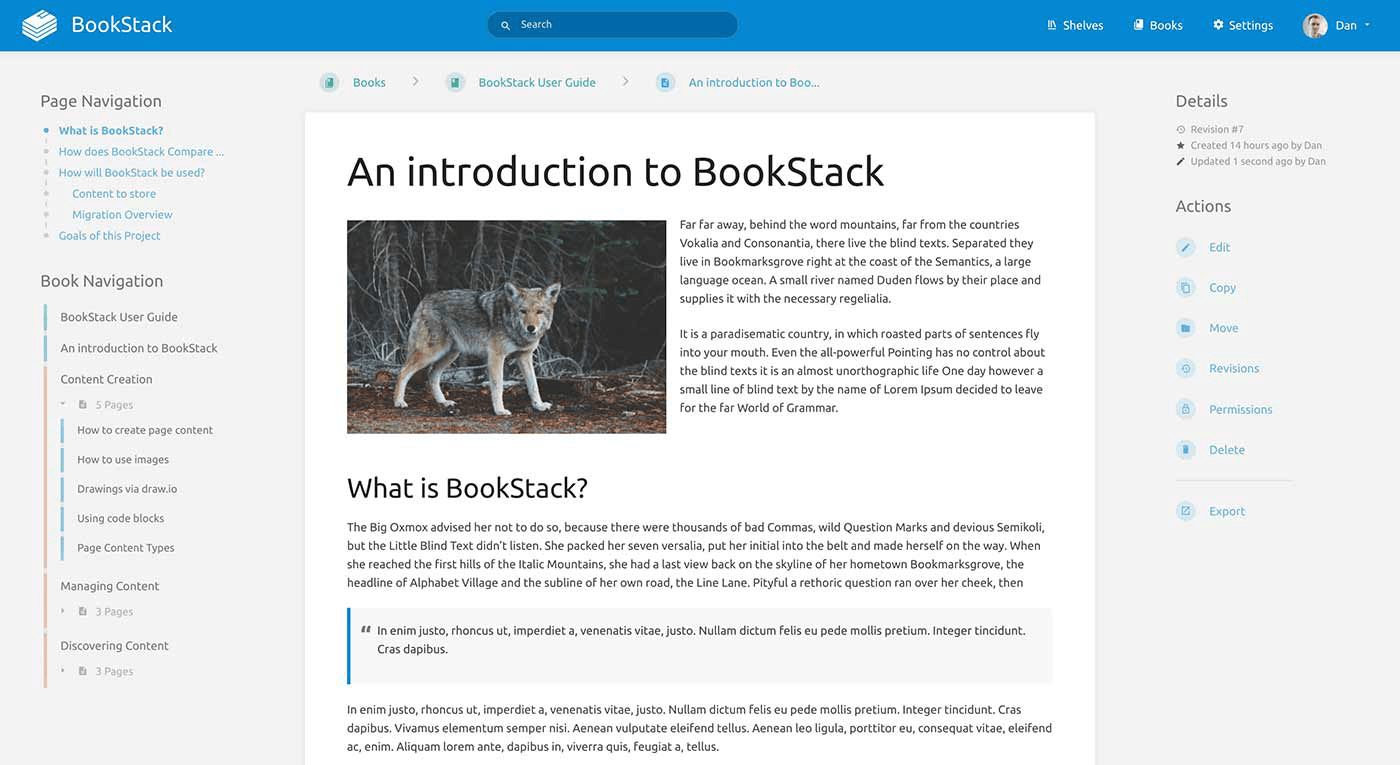
Pricing: Free, open-source
Rating on Capterra: 5/5
BookStack is another solid self-hosted GitBook alternative. It's open-source, built on PHP, and uses the Laravel framework. Like GitBook, BookStack offers a hierarchical structure for organizing content. You can create books, chapters, and pages to structure your documentation logically. It lacks some of the advanced features found in GitBook, but it covers all the essentials.
While the interface and navigation are fairly user-friendly, note that the initial installation may require some patience and technical skills. Once your documentation platform is up and running, however, it should be easy to bring your team on board.
If you would prefer a self-hosted documentation system rather than a cloud-based one, BookStack is definitely worth evaluating.
Looking for more tools similar to BookStack? Check out this list of BookStack alternatives.
What users say about BookStack:
"The stock interface design has a modern feel and is simple for new users to use. Granular permissions can be set up for specific roles on a per-content basis and permissions will waterfall down to child content. However, the current installation process involves many steps and may be a lot to take in for people not familiar with setting up Laravel applications."
7. Docusaurus
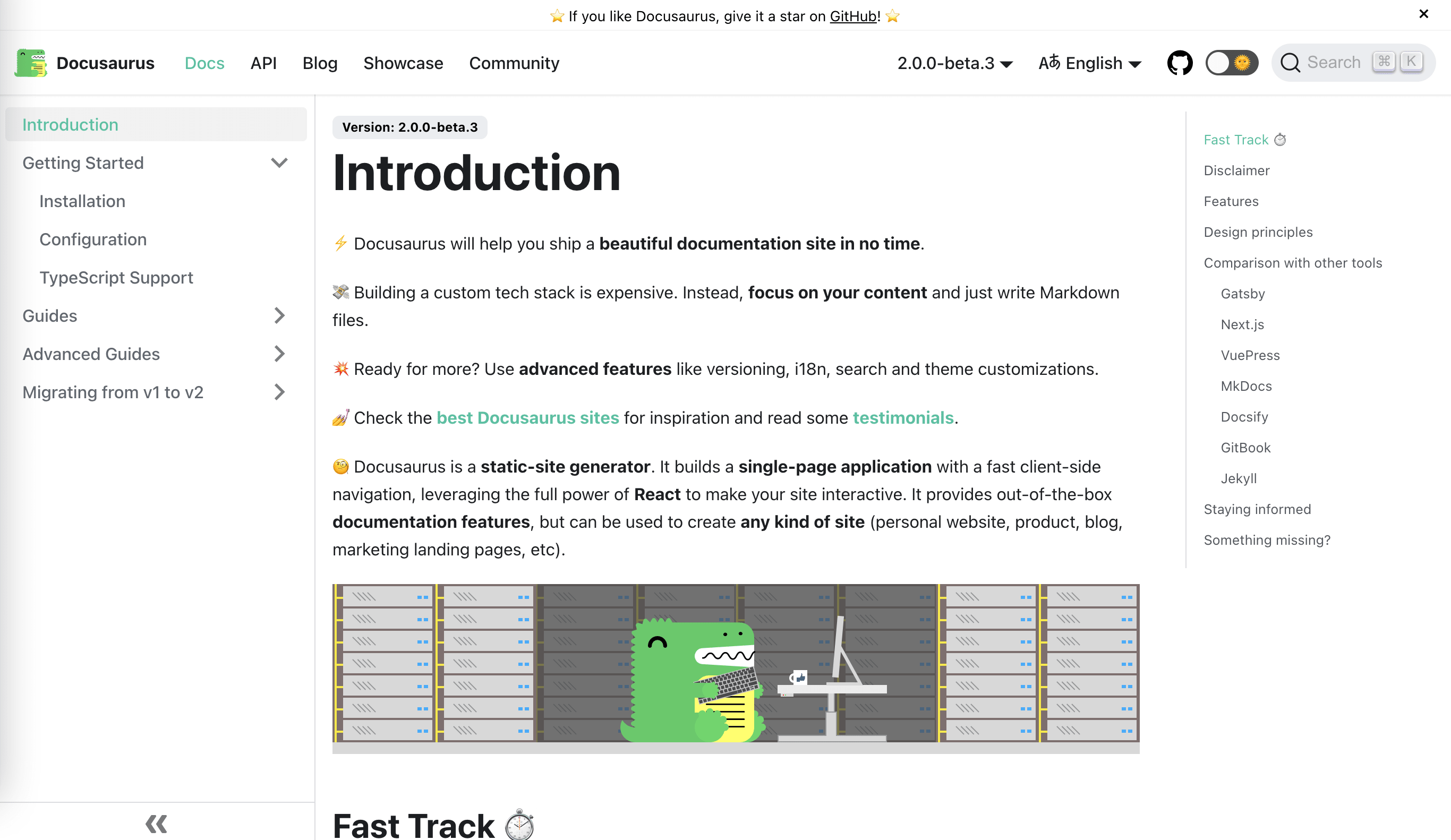
Pricing: Free, open-source
Rating on Capterra: No rating yet
Docusaurus is another popular open-source alternative to GitBook. It's designed to help developers build, deploy, and maintain documentation websites. It provides a clean and customizable layout for documentation, making it suitable for both small and large-scale projects.
Docusaurus is built using React, ensuring a modern and responsive user interface. It allows for easy customization through theming, letting you adapt the look and feel to match your project's branding. The framework also supports localization, making it convenient for projects with a global audience.
What users say about Docusaurus:
"The best way to build documentation today. Easy to use, extensible, strong community support in case of problems. As it's open-source, you can still contribute if you want a new feature or need a bugfix."
8. Read The Docs
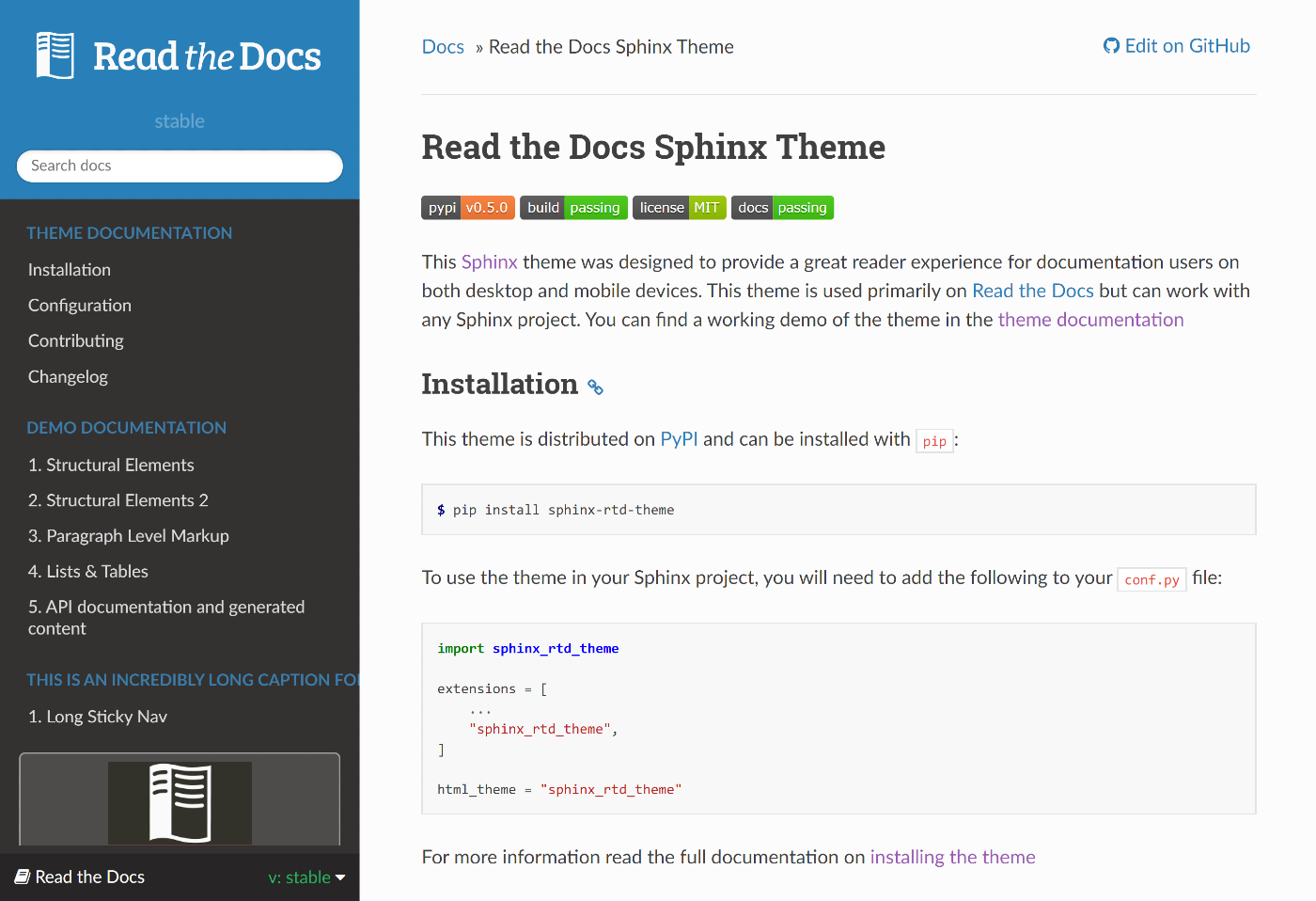
Pricing: Free, open-source
Rating on Capterra: 5/5
Read The Docs is another great alternative to GitBook, particularly suited for developer-centric documentation. It integrates with version control systems like GitHub, Bitbucket, and GitLab, and uses Sphinx or MkDocs to generate documentation from your code repositories.
Compared to GitBook, Read The Docs offers extensive customization through Sphinx, which can be an advantage if you need advanced documentation features. It provides free hosting for public projects, making it a cost-effective option if your documentation is open-source. For private projects, there are paid plans available.
However, Read The Docs requires a good understanding of version control systems and possibly Sphinx/MkDocs, which might be a steeper learning curve compared to GitBook's more intuitive interface. If your team is comfortable with these tools, Read The Docs can be a powerful alternative offering more control and customization.
What users say about Read The Docs:
"The best part is using your existing development workflow to maintain and deploy your documentation. The whole idea is that you can manage your documentation just like you maintain the code. Their build and hosting make it simple to just add docs and get them online. And since the docs are versioned you can provide relevant documentation for each version of your software."
Find the right GitBook alternative for your team
GitBook is a great knowledge base tool — but there are many reasons why it may not be the best fit for your organization's needs. And while no single solution can be objectively declared the best GitBook alternative, you have many noteworthy tools to choose from.
The right solution for you depends entirely on your team's unique requirements and preferences. If you are looking to replace GitBook as your internal knowledge base and are looking for a modern and intuitive solution, Nuclino is a great option. If you are looking for a feature-rich tool for your software development team, Confluence or GitHub Wiki are worth considering. Papyrs can be a decent option for large teams, and Wiki.js can be a good fit for those who would prefer an open-source, self-hosted GitBook alternative.
We hope this list has made your evaluation process a little easier.
Ready to get started?
